|
|
Post by Entendance on Jun 7, 2015 7:54:57 GMT -5

No room for anti-Americanism at Fred & Entendance Beach
If you're not part of the solution, you're part of the problem. -Sydney J. Harris
"We are, each of us, angels with only one wing, and we can only fly embracing each other."
"The only way on earth to multiply happiness is to divide it."

Men and Women for Others, the struggle never ends.
Are we not each a “being-for-ourselves?” Gifted with intelligence that endows us with power, do we not tend to control the world, making ourselves its center? Is this not our vocation, our history?
Yes; gifted with conscience, intelligence and power each of us is indeed a center. But a center called to go out of ourselves, to give ourself to others in love -- love, which is our definitive and all-embracing dimension, that which gives meaning to all our other dimensions. Only the one who loves fully realizes himself or herself as a person. To the extent that any of us shuts ourselves off from others we do not become more a person; we becomes less.
Anyone who lives only for his or her own interests not only provides nothing for others. He or she does worse. They tend to accumulate in exclusive fashion more and more knowledge, more and more power, more and more wealth; thus denying, inevitably to those weaker then themselves their proper share of the God-given means for human development.
What is it to humanize the world if not to put it at the service of mankind? But the egoist not only does not humanize the material creation, he or she dehumanizes others themselves. They change others into things by dominating them, exploiting them, and taking to themselves the fruit of their labor.
The tragedy of it all is that by doing this, the egoists dehumanize themselves. They surrender themselves with the possessions they covet; they become slaves – no longer persons who are self-possessed but un-persons, things driven by their blind desires and their objects.
But when we dehumanize, de-personalize ourselves in this way, something stirs within us. We feel frustrated. In our heart of hearts we know that what we have is nothing compared with what we are, what we can be, what we would like to be. We would like to be ourselves. But we dare not break the vicious circle. We think we can overcome our frustrations by striving to have more, to have more than others, to have ever more and more. We thus turn our lives into a competitive rat-race without meaning. What is it to humanize the world if not to put it at the service of mankind? But the egoist not only does not humanize the material creation, he or she dehumanizes others themselves. They change others into things by dominating them, exploiting them, and taking to themselves the fruit of their labor.
The tragedy of it all is that by doing this, the egoists dehumanize themselves. They surrender themselves with the possessions they covet; they become slaves – no longer persons who are self-possessed but un-persons, things driven by their blind desires and their objects.
But when we dehumanize, de-personalize ourselves in this way, something stirs within us. We feel frustrated. In our heart of hearts we know that what we have is nothing compared with what we are, what we can be, what we would like to be. We would like to be ourselves. But we dare not break the vicious circle. We think we can overcome our frustrations by striving to have more, to have more than others, to have ever more and more. We thus turn our lives into a competitive rat-race without meaning. The downward spiral of ambition, competition, and self-destruction twists and expands unceasingly, with the result that we are chained ever more securely to a progressive, and progressively frustrating, dehumanization. Dehumanization of ourselves and dehumanization of others. For by thus making egoism a way of life, we translate it, we objectify it, in social structures. Starting from our individual sins of egoism, we become exploiters of others, dehumanizing them and ourselves in the process, and hardening the process into a structure of society which may rightfully be called sin objectified. For it becomes hardened in ideas, institutions, impersonal and depersonalized organisms which now escape our direct control, a tyrannical power of destruction and self-destruction.

How escape from this vicious circle? Clearly, the whole process has its root in egoism – in the denial of love. But to try to live in love and justice in a world whose prevailing climate is egoism and injustice, where egoism and injustice are built into the very structures of society – is this not a suicidal, or at least a fruitless undertaking? Paul put it in a single sentence: “Do not allow yourself to be overcome by evil, but rather, overcome evil with good.” All of us would like to be good to others, and most of us would be relatively good in a good world. What is difficult is to be good in an evil world, where the egoism of others and the egoism built into the institutions of society attack us and threaten to annihilate us.
Under such conditions, the only possible reaction would seem to be to oppose evil with evil, egoism with egoism, hate with hate; in short, to annihilate the aggressor with his own weapons. But is it not precisely thus that evil conquers us most thoroughly? For then, not only does it damage us exteriorly, it perverts our very heart. We allow ourselves, in the words of Paul, to be overcome by evil.
No; evil is overcome only by good, hate by love, egoism by generosity. It is thus that we must sow justice in our world. To be just, it is not enough to refrain from injustice. One must go further and refuse to play its game, substituting love for self-interest as the driving force of society.
All this sounds very nice, you will say, but isn’t it just a little bit up in the air? Very well, let us get down to cases. How do we get this principle of justice through love down to the level of reality, the reality of our daily lives? By cultivating in ourselves three attitudes:
Live more simply
First, a firm determination to live much more simply – as individuals, as families, as social groups – and in this way to stop short, or at least to slow down, the expanding spiral of luxurious living and social competition. Let us have men and women who will resolutely set themselves against the tide of our consumer society. Men and women who, instead of feeling compelled to acquire everything that their friends have will do away with many of the luxuries which in their social set have become necessities, but which the majority of mankind must do without. And if this produces surplus income, well and good; let it be given to those for whom the necessities of life are still luxuries beyond their reach.
No unjust profit
Second, a firm determination to draw no profit whatever from clearly unjust sources. Not only that, but going further, to diminish progressively our share in the benefits of an economic and social system in which the regards of production accrue to those already rich, while the cost of production lies heavily on the poor. Let there be men and women who will bend their energies not to strengthen positions of privilege, but, to the extent possible, reduce privilege in favor of the underprivileged. Please do not conclude too hastily that this does not pertain to you – that you do not belong to the privileged few in your society. It touches everyone of a certain social position, even though only in certain respects, and even if we ourselves may be the victims of unjust discrimination by those who are even better off than ourselves. In this matter, our basic point of reference must be the truly poor, the truly marginalized, in our own countries and in the Third World.
Change unjust structures
Third, and most difficult: a firm resolve to be agents of change in society; not merely resisting unjust structures and arrangements, but actively undertaking to reform them. For, if we set out to reduce income in so far as it is derived from participation in unjust structures, we will find out soon enough that we are faced with an impossible task unless those very structures are changed.
What kind of man or woman is needed today by the world? One who is a “man-or woman-for-others.”
Pedro Arrupe July 31, 1973
The Nobel Peace Prize 1984 Desmond Tutu
"...It doesn’t matter where we worship or what we call God; there is only one, inter-dependent human family. We are born for goodness, to love – free of prejudice. All of us, without exception. There is greater commonality in our belief systems than we tend to credit, a golden thread expressed in the maxim that one should treat others as one would like others to treat oneself. I don’t believe in the notion of “opposing belief systems.” It would be more accurate to say that human beings have a long history of rationalizing acts of inhumanity on the basis of their own interpretations of the will of God..."
If you like this beach, then you can help your friends locate it by letting them know about Fred & EntendanceInvestors Beach.
Let's all make this place a thriving sheltered Club for excellence, education and information
|
|
|
|
Post by Entendance on Jun 17, 2015 4:08:27 GMT -5
Men and Women for Others:*** AXEL MUNTHE
<What you keep to yourself you lose, what you give away you keep for ever. Besides you have no right to keep this money to
yourself, it does not belong to you, money belongs to nobody up here.
All money belongs to the Devil who sits at his counter night and day behind his sacks of gold trading with human souls. Do not hold on too long to the dirty coin he puts in your hand, get rid of it as soon as you can or the cursed metal will soon burn your fingers, penetrate into your blood, blind your eyes, infect your thoughts and harden your heart.
What is the good of hoarding your money, it will soon be taken from you in any case. Death has another key to your safe.

The gods sell all things at a fair price, said an old poet. He might have added that they sell their best goods at the cheapest rate. All that
is really useful to us can be bought for little-money, it is only the superfluous that is put up for sale at a high price.
All that is really beautiful is not put up for sale at all but is offered us as a gift by the immortal gods. We are allowed to watch the sun rise and set, the clouds sailing along in the sky, the forests and the fields, the glorious sea, all without spending a penny. The birds sing to us for nothing, the wild flowers we may pick as we are walking along by the road- side. There is no entrance fee to the starlit hall of the Night. The poor man sleeps better than the rich man.
Simple food tastes in the long run better than food from Ritz. Contentment and peace of mind thrive better in a small country cottage than in the stately palace in a town. A few friends, a few books, indeed a very few, and a dog is all you need to have about you as long as you have yourself. But you should live in the country. The first town was planned by the Devil, that is why God wanted to destroy the tower of Babel.>
From THE STORY OF SAN MICHELE by AXEL MUNTHE
"Meditation is the life of the soul: Action, the soul of meditation; and honor the reward of action. So meditate, that thou mayst do; so do, that thou mayst purchase honor; for which purchase, give God the glory." -Francis Quarles
"Half an hour's meditation each day is essential, except when you are busy. Then a full hour is needed." - Francis de Sales

If you like this beach, then you can help your friends locate it by letting them know about Fred & EntendanceInvestors Beach.
Let's all make this place a thriving sheltered Club for excellence, education and information
|
|
|
|
Post by Entendance on Jul 22, 2015 10:22:40 GMT -5
|
|
|
|
Post by Entendance on Aug 18, 2015 13:19:38 GMT -5
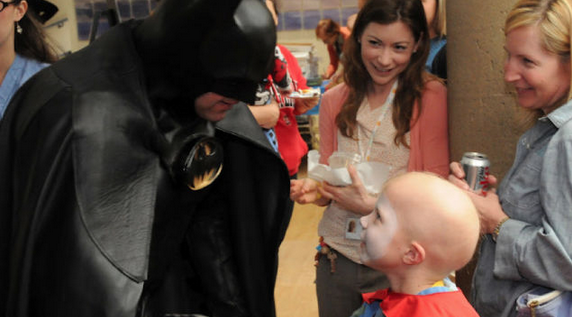 Route 29 Batman killed in car crash
RIP Route 29 Batman!
 "Whoever receives one child like this in My name receives Me; and whoever receives Me does not receive Me, but Him who sent Me." -Mark 9:36-37
|
|
|
|
Post by Entendance on Sept 19, 2015 12:35:44 GMT -5
|
|
|
|
Post by Entendance on Oct 1, 2015 5:09:52 GMT -5
Our Struggles Develop Our Strengths Passion And Persistence: What Makes Us Tough Makes Us Triumph More here |
|
|
|
Post by Entendance on Oct 5, 2015 11:40:48 GMT -5
The Vatican is the prototype of a Corporate Fascist entity. It answers to nobody. It pays taxes to nobody. Its Bishops and priests have diplomatic immunity all over the world. It even has its own embassies. It owns more real estate than any other entity on the planet.
It was never about God, Jesus or Christianity, it is about power and control and “fashion statements. “
Corporate Fascism, The Vatican and the 21st Century
Scotland Yard's paedophile unit: Meeting the police men and women doing the most difficult work imaginable More here Meawhile...dr. Bergoglio should get his own house in order before lecturing others, read ***here why (Argentina's victims) 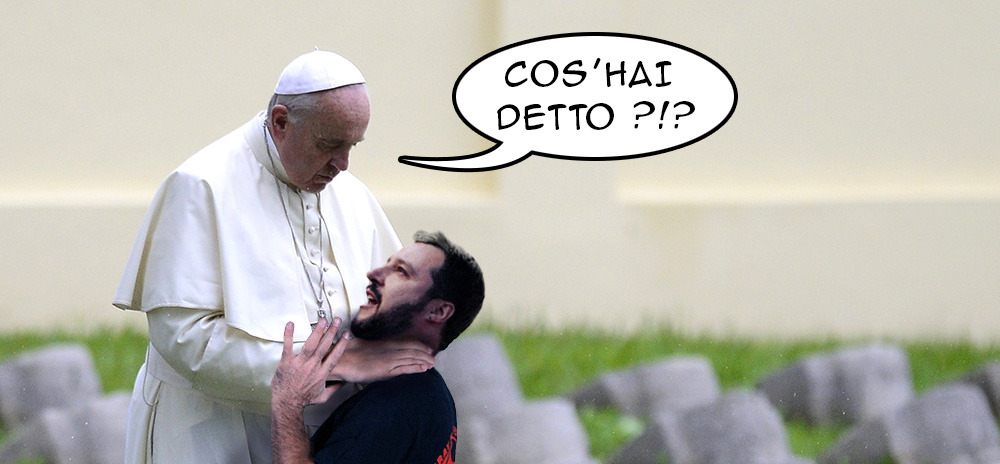
Pope Sympathizes More with Bishops, Less with Victims More here
"Can God Forgive Jorge Mario Bergoglio?" More here
 *** Bota na conta do papa *** Bota na conta do papa
|
|
|
|
Post by Entendance on Oct 13, 2015 10:49:55 GMT -5
Steve: "12 Best Things Paul Tudor Jones Ever Said"
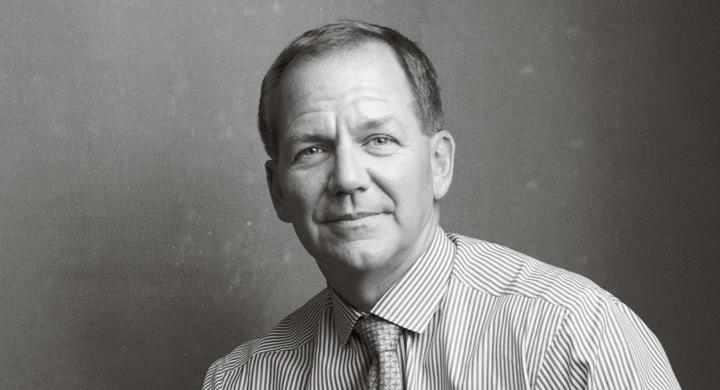
1.“The secret to being successful from a trading perspective is to have an indefatigable and an undying and unquenchable thirst for information and knowledge.”
2.“Intellectual capital will always trump financial capital.”
3.“Every day I assume every position I have is wrong.”
4.“Losers average losers.”
5.“You adapt, evolve, compete or die.”
6.“Trading is very competitive and you have to be able to handle getting your butt kicked.”
7.“The whole world is simply nothing more than a flow chart for capital.”
8.“At the end of the day, the most important thing is how good are you at risk control.”
9.“Always think of your entry point as last night’s close.”
10.“I will keep cutting my position size down as I have losing trades. When I am trading poorly, I keep reducing my position size. That way, I will be trading my smallest position size when my trading is worst.”
11.“Don’t be a hero. Don’t have an ego. Always question yourself and your ability. Don’t ever feel that you are very good. The second you do, you are dead.”
12.“Markets trend only about 15 percent of the time; the rest of the time they move sideways.”
Paul Tudor Jones on Jesse Livermore here
|
|
|
|
Post by Entendance on Dec 14, 2015 5:42:24 GMT -5
Abolishing war is urgently needed, and this is achievable!
Here's the complete text of Gino Strada's acceptance speech at the Right Livelihood Award 2015 (the "Alternative Nobel Prize") ceremony.
Honourable Members of the Parliament, honourable members of the Swedish Government, members of the RLA Foundation, fellow Laureates, Excellences, friends, ladies and gentlemen.
It is a honour for me to receive this prestigious award, that I consider a sign of appreciation for the outstanding work that the humanitarian organization EMERGENCY has done in the past 21 years in favour of the victims of war and poverty.
I am a surgeon. I have seen the wounded (and the dead) in several conflicts in Asia, in Africa, in the Middle East, in Latin America and in Europe. I have performed surgery on several thousands of people, injured by bullets, by shrapnel from bombs or rockets.
Thank you very much.
In Quetta, the Pakistani city close to the Afghan border, I met victims of antipersonnel mines for the first time. I performed surgery on many children injured by the so-called "toy mines"; small plastic green butterflies the size of a pack of cigarettes. Scattered in the fields, these weapons wait for a curious child to pick them up and play with for a while, until the detonation occurs: one or both hands are blown away, burns over the chest, the face and the eyes. Armless and blind children. I still have vivid memories of those victims, and the view of those atrocities changed my life.
It took me time to accept the idea that a "war strategy" could include practices like deliberately targeting and maiming children in the "enemy's country". Weapons designed not to kill but to inflict horrific suffering upon innocent children and posing a terrible burden to their families and their society.
For me, even today, those children are the living symbol of contemporary wars, a persistent form of terrorism against the civilian populations.
A few years later, in Kabul, I went through the files of about 1,200 patients, and discovered that less than 10 percent of them were likely to be combatants. Ninety percent of the victims were civilians, one third of them children. Are they "the enemy"? Who pays the price of war?
In the past century, the percentage of civilian casualties has dramatically increased from approximately 15% in WWI to more than 60% in WWII. And in the more than 160 "major conflicts" that the planet has experienced after the end of WWII, that took the lives of more than 25 million people, the percentage of civilian victims has consistently been around ninety percent of the total, very much like the data from the afghan conflict.
Working in war torn regions for more than 25 years, I have witnessed this cruel and sad reality, perceived the magnitude of this social tragedy, of this carnage of civilians, mostly occurring in areas with almost non-existent health facilities.
Over the years, EMERGENCY has built and run surgical hospitals for war victims in Rwanda, in Cambodia, in Iraq, in Afghanistan, in Sierra Leone and in many other countries, then expanded its medical activities to include pediatric and maternity centers, rehabilitation centers, clinics and first-aid posts.
The origin and foundation of EMERGENCY back in 1994, did not derive from a set of principles and declarations. Rather, It was conceived on operating tables and in hospital wards. Treating the wounded is neither generous nor merciful, it is only just. It has to be done.
In 21 years of activity, EMERGENCY has provided medical and surgical assistance to more than 6,5 million people. A drop in the ocean - you might say - but that drop has made a difference for many. Somehow it has also changed the lives of those who have shared the experience of EMERGENCY, like me.
Every time, in the different conflicts we have been working in, regardless of who was fighting against whom and for what reason, the result was always the same: war was nothing but killing of civilians, death, destruction . The tragedy of the victims is the only truth of war.
Confronted daily with this dreadful truth, we embraced the idea of a community where human relationships are founded on solidarity and mutual respect.
Indeed, this was the hope shared worldwide in the aftermath of the Second World War. This hope led to the establishment of the United Nations, as stated in the Preamble of the UN Charter: "to save succeeding generations from the scourge of war, which twice in our lifetime has brought untold sorrow to mankind, and to reaffirm faith in fundamental human rights, in the dignity and worth of the human person, in the equal rights of men and women and of nations large and small."
The indissoluble link between human rights and peace and the relation of mutual exclusion between war and rights were also stressed in the Universal Declaration of Human Rights, signed in 1948. "All human beings are born free and equal in dignity and rights" and the "recognition of the equal and inalienable rights of all members of the human family is the foundation of freedom, justice and peace in the world."
70 years later that Declaration sounds provocative, offensive and clearly false. So far not one among the signatory States has completely implemented the universal rights they had committed to: the right to a dignified life, to a job and a home, to education and health care. In one word, the right to social justice. At the beginning of the new millennium there are no rights for all, but privileges for a few.
The single and most aberrant, widespread and persistent violation of human rights is the practice of war, in all its forms. By denying the right to stay alive, war denies all human rights.
I would like to stress once again that in most countries ravaged by violence those who pay the price are women and men like us, nine times out of ten.
We shall never forget this.
In the month of November 2015 alone, more than 4000 civilians have been killed in several countries including Afghanistan, Egypt, France, Iraq, Libya, Mali, Nigeria, Syria, Somalia. Many more people have been wounded and maimed, or forced to flee from their homes.
Being a witness to the atrocities of war, I have seen how turning to violence has most of the times only brought in more violence and suffering. War is an act of terrorism, and terrorism is an act of war: they share a common denominator, the use of violence.
Sixty years later, we are still confronted with the dilemma posed in 1955 by leading world scientists in the so called Russell-Einstein Manifesto: "Shall we put an end to the human race; or shall mankind renounce war?." Can we have a world without war to guarantee a future to the human race?
Many would argue that wars have always existed. This is true but it does not prove in any way that the recourse to war is inevitable, nor can we assume that a world without war is unachievable. The fact that war has marked our past does not mean that it has to be part of our future as well. As with illnesses, war should be considered as a problem to solve, not as our destiny.
As a doctor, I could compare war with cancer. Cancer vexes humanity and claims many victims: does this mean that all efforts of medicine are useless? On the contrary, it is exactly the persistence of this devastating disease that prompts us to increase the efforts to prevent and defeat it.
Conceiving a world without war is the most stimulating task that the human race is facing. It is also the most urgent. Atomic scientists, through their Doomsday clock, are warning the human race: "The clock ticks now at just three minutes to midnight because international leaders are failing to perform their most important duty—ensuring and preserving the health and vitality of human civilization."
The biggest challenge for the coming decades is to imagine, design and implement the conditions that will allow us to reduce the recourse to force and to mass violence until they fully disappear. War, just like deadly diseases, has to be prevented and cured. Violence is not the right medicine: it does not cure the disease, it kills the patient."
The abolition of war is the first indispensable step in this direction. We may call it utopia, as it has never occurred before. However, the term utopia does not designate something absurd, but rather a possibility that still has to be explored and accomplished.
Many years ago even the abolition of slavery seemed "utopian". In the XVIII century the "possession of slaves" was deemed as "normal". A massive movement - gathering hundreds of million citizens over the years, decades and centuries - changed the perception of slavery: today we repel the idea of human beings chained and reduced to slavery. That utopia became true.
A world without war is another utopia we cannot wait any longer to see materialized.
We must convince millions of people that abolishing war is urgently needed and achievable. This must penetrate deeply into our consciousness, until the idea of war becomes a taboo, expelled from human history.
Receiving the Right Livelihood Award encourages me personally, and Emergency as a whole, to multiply our efforts: caring for the victims and promoting a cultural movement for the abolition of war.
I take this opportunity to appeal to you all, to the community of the RLA laureates to join forces and support this initiative. Working together for a world without war is the best we can do for the generations to come.
Thank you very much.
-- Gino Strada, EMEGRENCY NGO Founder, Stockholm, November 30, 2015
|
|
|
|
Post by Entendance on Jan 1, 2016 9:50:53 GMT -5
"Step 1: Start with you Step 2: Continue with those around you Step 3: Create something new We can change the world, but the key to doing so is in you and me." How to change the world in 3 easy steps

|
|
|
|
Post by Entendance on Jan 13, 2016 19:34:30 GMT -5
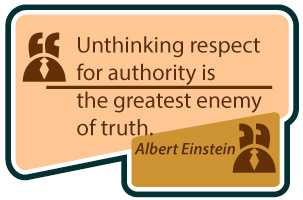
More here
If you like this beach, then you can help your friends locate it by letting them know about Fred & EntendanceInvestors Beach.
Let's all make this place a thriving sheltered Club for excellence, education and information!
Sollte dir dieser Strand gefallen, dann kannst du deinen Freunden behilflich sein, indem du sie über Fred & EntendanceInvestors Beach informierst.
Lasst uns gemeinsam diesen Ort zu einen blühenden Club für Vortrefflichkeit, Bildung und Information machen!
|
|
|
|
Post by Entendance on Jan 15, 2016 6:43:31 GMT -5
20 Terrible Ways to Trade Good trading is very basic; it’s trading with an edge to capture a trend in your own time frame, while managing your risk exposure carefully with the right position sizing and stop loss.
There are endless ways to trade badly. You can change these if you make an effort and become self-aware. Be on the lookout for these pitfalls.
Here are the top 20 |
|
|
|
Post by Entendance on Jan 25, 2016 5:16:12 GMT -5
If you don't take direct action to make things better you're an obstacle to change. 
<If you're not part of the solution, you're part of the problem.> -Eldridge Cleaver
All about The sheeple attitude |
|
|
|
Post by Entendance on Feb 11, 2016 10:53:57 GMT -5
|
|
|
|
Post by Entendance on Mar 3, 2016 17:48:13 GMT -5
"Stephen brought us groundbreaking information that no one is talking about basically breaking down step by step how central bankers intend to impose a world currency on the populace using blockchain derivatives. This analysis has never been done before for the masses to see and understand.
Stephen Kendal started by explaining derivatives and the different types of derivatives. From that, he moved on to basic mortgage loans, bundled loans, S.P.E. (Special Purpose Entity) or S.P.V. (Special Purpose Vehicles), mortgage backed security (M.B.S.), collateralized debt obligation (C.D.O.), credit default swap (C.D.S.), other types of derivatives. Stephen then wrapped everything up by explaining blockchain technology and the future implementation of blockchain by central bankers.
Stephen predicts that we will soon see this implementation as the economy crashes and central banks capitalize on their lack of accountability.
Basically, the creation of a New World Order as has been pushed for decades by the highest up elites will emanate itself with blockchain derivatives forever dooming the world economy.
This is historic, but not only that, it's disastrous and terrifying.
If we can all come to understand what's happening right now, we may be able to stop this.
Share this report on all social medias and let's make sure people are aware of what's happening!"
More here
"You’re never going to save everyone. There are some people that are never going to get it. It’s sad, but true.
There will always be investors that can’t help themselves or get out of their own way.
I used to think everyone could be saved if they would only learn. But changing behavior is simply too difficult for many.
In order for one group of investors to prosper, another group has to fail. It’s an unfortunate truth of the financial markets."
-Ben Carlson
Fred & EntendanceInvestors Beach
Sollte dir dieser Strand gefallen, dann kannst du deinen Freunden behilflich sein, indem du sie über Fred & EntendanceInvestors Beach informierst.
Lasst uns gemeinsam diesen Ort zu einen blühenden Club für Vortrefflichkeit, Bildung und Information machen!
If you like this beach, then you can help your friends locate it by letting them know about Fred & EntendanceInvestors Beach.
Let's all make this place a thriving sheltered Club for excellence, education and information!
|
|
|
|
Post by Entendance on Mar 14, 2016 4:40:29 GMT -5

Turn your face to the sun and the shadows fall behind you!
"Instead of seeing the rug being pulled from under us, we can learn to dance on the shifting carpet." -Thomas Crum
|
|
|
|
Post by Entendance on Mar 23, 2016 6:06:11 GMT -5
Great American Musicians: Patrice Rushen, multi-instrumentalist and Berklee professor, should have been a superstar. We’re left to wonder what could’ve been, but we’re also left with a small fortune of amazing music.
I met her once in N.Y.C. 1983. Funky Lady! |
|
|
|
Post by Entendance on Mar 27, 2016 4:50:32 GMT -5
The radical message of Easter, then, is not simply that Jesus Christ rose from the dead. It’s what Jesus’s resurrection meant to Caesar’s regime and to every other regime, including ours today. These regimes have an expiration date on them. They will replaced by Jesus’s kingdom where there is an institutional bias for the bottom and a preference for the poor.
Here are a few a policy initiatives for this new kingdom:
•Give shelter to the stranger.
•Proclaim liberty to captives.
•Love your enemies.
•Pray for those who persecute you.
•Forgive those who trespass against us.
When Mary Magdalene encountered the empty tomb, she ran to tell the others the news. Today’s Christians must imitate Mary’s posture. Like her, we must make haste to share the impossibly good news that God has raised Jesus Christ from the dead, and that through his great love, our lives and our society can be given a new horizon and a decisive direction. -Christopher J. Hale
***Easter Bible Verses
39) He also told them a parable: "Can a blind man lead a blind man? Will they not both fall into a pit? 40) A disciple is not above his teacher, but every one when he is fully taught will be like his teacher. 41) Why do you see the speck that is in your brother's eye, but do not notice the log that is in your own eye? 42) Or how can you say to your brother, 'Brother, let me take out the speck that is in your eye,' when you yourself do not see the log that is in your own eye? You hypocrite, first take the log out of your own eye, and then you will see clearly to take out the speck that is in your brother's eye. 43) "For no good tree bears bad fruit, nor again does a bad tree bear good fruit; 44) for each tree is known by its own fruit. For figs are not gathered from thorns, nor are grapes picked from a bramble bush. 45) The good man out of the good treasure of his heart produces good, and the evil man out of his evil treasure produces evil; for out of the abundance of the heart his mouth speaks. 46) "Why do you call me 'Lord, Lord,' and not do what I tell you? 47) Every one who comes to me and hears my words and does them, I will show you what he is l ike: 48) he is like a man building a house, who dug deep, and laid the foundation upon rock; and when a flood arose, the stream broke against that house, and could not shake it, because it had been well built. 49) But he who hears and does not do them is like a man who built a house on the ground without a foundation; against which the stream broke, and immediately it fell, and the ruin of that house was great." -Luke 6:39-49
MAKE CERTAIN THAT YOU ARE A TRUE DISCIPLE
|
|
|
|
Post by Entendance on Mar 28, 2016 6:37:27 GMT -5
|
|
|
|
Post by Entendance on Apr 21, 2016 17:24:05 GMT -5

NEW: Hang the banksters
A professor once visited a Japanese master to inquire about Zen. The master served tea. When the visitor’s cup was full, the master kept pouring. Tea spilled out of the cup and over the table.
“The cup is full!” said the professor. “No more will go in!”
“Like this cup,” said the master, “You are full of your own opinions and speculations. How can I show you Zen unless you first empty your cup?”
You can see how this story applies not only to learning about Zen, but to learning about anything at all. The spirit of enquiry is the mind that is open to the unknown, and empty of pre-conceived ideas.
“In the beginner’s mind there are many possibilities, but in the expert’s there are few.” – Zen Master Shunryo Suzuki

Anse Du Riz, Mahè, Sey
|
|
|
|
Post by Entendance on May 6, 2016 3:58:28 GMT -5
|
|
|
|
Post by Entendance on May 11, 2016 11:56:30 GMT -5

Tom H. Hastings:*** Yes to Assertive, No to Aggressive
("No rational argument will have a rational effect on a man who does not want to adopt a rational attitude." -Karl Popper) |
|
|
|
Post by Entendance on May 17, 2016 7:09:28 GMT -5
|
|
|
|
Post by Entendance on Aug 25, 2016 4:00:30 GMT -5
|
|
|
|
Post by Entendance on Aug 31, 2016 6:33:47 GMT -5
|
|
|
|
Post by Entendance on Sept 6, 2016 15:37:52 GMT -5
"the buck is stopping" Once again our great Warren absolutely spot on... <Warren's salient points:
In a functioning society you can bear a 20% skim but today the system skims 80%...it will not and can not persist. Racketeering is pervasive.
Why are any of the initiatives of corrupt politicians allowed to persist? We are going to pay compound interest on past malfeasance!!
View everything from the point of view of a criminal if you want to survive.> -Tom Pre-Collapse More Dangerous Than Actual Collapse-Warren Pollock Geopolitical and financial analyst Warren Pollock says danger for all Americans is here right now. Pollock explains, “Where we are is more important than where we will be because right now, we are in sort of a Twilight Zone of transition between stability and instability. I think this is a dangerous time, and for some, it will be more dangerous than the actual collapse. . . . The entire system we live in today is one large racketeering engine, and we really have to understand that for us to negotiate around this looting that is going to occur. You cannot eliminate all the looting from your life, but you can go around it to a certain degree. For example, you might need a pair of eyeglasses and spend several hundred dollars when someone in China can make eyeglasses for $5 or $10 of the same or better quality. . . . There is no competition in the United States. There is no free election. There is no free market. There is not capitalism. All of these things that you believe to be in place right now are lies. . . . It’s procedural racketeering. It is the veneer of a functioning economy or a functional system. This sort of procedural racketeering is also procedural control and procedural information gathering. It is dystopia of epic proportions.”
Pollock goes on to say, “Think about your life and how you relate with procedures, and you will find that each and every one of these procedures leads to a destination, and that destination is racketeering. Why don’t we say that these procedures in total are described incorrectly as the New World Order. The correct way to describe this is the Apparatus, the procedural looting and racketeering apparatus that is systemically present in our political system, our economy and our interrelations between each other. So, we have this apparatus that is similar to a communist apparatus. It is similar to a watch with many dials in it and many gears in it. You are a cog in this machine, and all of a sudden, the gears wear off one of these small components, and guess what? The thing functions poorly, and then, a little later, the thing stops functioning entirely.”
How do you survive the system going down? Pollock says, “I think for your survival, it is totally essential that you understand where we are with no ambiguity. We are in the context of racketeering. The procedures are the tools the racketeers use, and the apparatus is the very large global system where we are today. This isn’t something to get emotional about . . . We’ve allowed our system to degenerate to the point that people cannot make decisions. . . . Harry Truman said, ‘The buck stops here.’ . . . In reality, what we are watching right now is the buck stopping. The buck is stopping, not only monetarily, if you look at M2 velocity of money, it’s stopping in capital formation. People can no longer take their money and start a productive enterprise. The buck is stopping in terms of people critically thinking. The buck is stopping in terms of taking responsibility and having accountability.”
In closing, Pollock says, “The question being asked is when is the collapse going to happen? We are in a worse period. It’s a pre-collapse period. This is what happened before WWII. This is what happened before Rome fell. It was a period in time where things worked sort of, a sort of function and a sort of dysfunction. There has always been racketeering in our economy and in our society. It’s human nature, but here’s the difference. In a society that’s functioning, the society can survive with some percentage of racketeering. Right now, racketeering is so pervasive you cannot do the things in society for that society to function.”
|
|
|
|
Post by Entendance on Sept 15, 2016 2:28:27 GMT -5
|
|
|
|
Post by Entendance on Sept 16, 2016 9:19:50 GMT -5
|
|
|
|
Post by Entendance on Oct 4, 2016 3:40:48 GMT -5
|
|
|
|
Post by Entendance on Oct 16, 2016 4:51:11 GMT -5

If Children ruled the World:
No Exploitation No Discrimination No Bullying No Death & Destruction for Profit!

Abolishing war is urgently needed, and this is achievable!
Here's the complete text of Gino Strada's acceptance speech at the Right Livelihood Award 2015 (the "Alternative Nobel Prize") ceremony.
Honourable Members of the Parliament, honourable members of the Swedish Government, members of the RLA Foundation, fellow Laureates, Excellences, friends, ladies and gentlemen.
It is a honour for me to receive this prestigious award, that I consider a sign of appreciation for the outstanding work that the humanitarian organization EMERGENCY has done in the past 21 years in favour of the victims of war and poverty.
I am a surgeon. I have seen the wounded (and the dead) in several conflicts in Asia, in Africa, in the Middle East, in Latin America and in Europe. I have performed surgery on several thousands of people, injured by bullets, by shrapnel from bombs or rockets.
Thank you very much.
In Quetta, the Pakistani city close to the Afghan border, I met victims of antipersonnel mines for the first time. I performed surgery on many children injured by the so-called "toy mines"; small plastic green butterflies the size of a pack of cigarettes. Scattered in the fields, these weapons wait for a curious child to pick them up and play with for a while, until the detonation occurs: one or both hands are blown away, burns over the chest, the face and the eyes. Armless and blind children. I still have vivid memories of those victims, and the view of those atrocities changed my life.
It took me time to accept the idea that a "war strategy" could include practices like deliberately targeting and maiming children in the "enemy's country". Weapons designed not to kill but to inflict horrific suffering upon innocent children and posing a terrible burden to their families and their society.
For me, even today, those children are the living symbol of contemporary wars, a persistent form of terrorism against the civilian populations.
A few years later, in Kabul, I went through the files of about 1,200 patients, and discovered that less than 10 percent of them were likely to be combatants. Ninety percent of the victims were civilians, one third of them children. Are they "the enemy"? Who pays the price of war?
In the past century, the percentage of civilian casualties has dramatically increased from approximately 15% in WWI to more than 60% in WWII. And in the more than 160 "major conflicts" that the planet has experienced after the end of WWII, that took the lives of more than 25 million people, the percentage of civilian victims has consistently been around ninety percent of the total, very much like the data from the afghan conflict.
Working in war torn regions for more than 25 years, I have witnessed this cruel and sad reality, perceived the magnitude of this social tragedy, of this carnage of civilians, mostly occurring in areas with almost non-existent health facilities.
Over the years, EMERGENCY has built and run surgical hospitals for war victims in Rwanda, in Cambodia, in Iraq, in Afghanistan, in Sierra Leone and in many other countries, then expanded its medical activities to include pediatric and maternity centers, rehabilitation centers, clinics and first-aid posts.
The origin and foundation of EMERGENCY back in 1994, did not derive from a set of principles and declarations. Rather, It was conceived on operating tables and in hospital wards. Treating the wounded is neither generous nor merciful, it is only just. It has to be done.
In 21 years of activity, EMERGENCY has provided medical and surgical assistance to more than 6,5 million people. A drop in the ocean - you might say - but that drop has made a difference for many. Somehow it has also changed the lives of those who have shared the experience of EMERGENCY, like me.
Every time, in the different conflicts we have been working in, regardless of who was fighting against whom and for what reason, the result was always the same: war was nothing but killing of civilians, death, destruction . The tragedy of the victims is the only truth of war.
Confronted daily with this dreadful truth, we embraced the idea of a community where human relationships are founded on solidarity and mutual respect.
Indeed, this was the hope shared worldwide in the aftermath of the Second World War. This hope led to the establishment of the United Nations, as stated in the Preamble of the UN Charter: "to save succeeding generations from the scourge of war, which twice in our lifetime has brought untold sorrow to mankind, and to reaffirm faith in fundamental human rights, in the dignity and worth of the human person, in the equal rights of men and women and of nations large and small."
The indissoluble link between human rights and peace and the relation of mutual exclusion between war and rights were also stressed in the Universal Declaration of Human Rights, signed in 1948. "All human beings are born free and equal in dignity and rights" and the "recognition of the equal and inalienable rights of all members of the human family is the foundation of freedom, justice and peace in the world."
70 years later that Declaration sounds provocative, offensive and clearly false. So far not one among the signatory States has completely implemented the universal rights they had committed to: the right to a dignified life, to a job and a home, to education and health care. In one word, the right to social justice. At the beginning of the new millennium there are no rights for all, but privileges for a few.
The single and most aberrant, widespread and persistent violation of human rights is the practice of war, in all its forms. By denying the right to stay alive, war denies all human rights.
I would like to stress once again that in most countries ravaged by violence those who pay the price are women and men like us, nine times out of ten.
We shall never forget this.
In the month of November 2015 alone, more than 4000 civilians have been killed in several countries including Afghanistan, Egypt, France, Iraq, Libya, Mali, Nigeria, Syria, Somalia. Many more people have been wounded and maimed, or forced to flee from their homes.
Being a witness to the atrocities of war, I have seen how turning to violence has most of the times only brought in more violence and suffering. War is an act of terrorism, and terrorism is an act of war: they share a common denominator, the use of violence.
Sixty years later, we are still confronted with the dilemma posed in 1955 by leading world scientists in the so called Russell-Einstein Manifesto: "Shall we put an end to the human race; or shall mankind renounce war?." Can we have a world without war to guarantee a future to the human race?
Many would argue that wars have always existed. This is true but it does not prove in any way that the recourse to war is inevitable, nor can we assume that a world without war is unachievable. The fact that war has marked our past does not mean that it has to be part of our future as well. As with illnesses, war should be considered as a problem to solve, not as our destiny.
As a doctor, I could compare war with cancer. Cancer vexes humanity and claims many victims: does this mean that all efforts of medicine are useless? On the contrary, it is exactly the persistence of this devastating disease that prompts us to increase the efforts to prevent and defeat it.
Conceiving a world without war is the most stimulating task that the human race is facing. It is also the most urgent. Atomic scientists, through their Doomsday clock, are warning the human race: "The clock ticks now at just three minutes to midnight because international leaders are failing to perform their most important duty—ensuring and preserving the health and vitality of human civilization."
The biggest challenge for the coming decades is to imagine, design and implement the conditions that will allow us to reduce the recourse to force and to mass violence until they fully disappear. War, just like deadly diseases, has to be prevented and cured. Violence is not the right medicine: it does not cure the disease, it kills the patient."
The abolition of war is the first indispensable step in this direction. We may call it utopia, as it has never occurred before. However, the term utopia does not designate something absurd, but rather a possibility that still has to be explored and accomplished.
Many years ago even the abolition of slavery seemed "utopian". In the XVIII century the "possession of slaves" was deemed as "normal". A massive movement - gathering hundreds of million citizens over the years, decades and centuries - changed the perception of slavery: today we repel the idea of human beings chained and reduced to slavery. That utopia became true.
A world without war is another utopia we cannot wait any longer to see materialized.
We must convince millions of people that abolishing war is urgently needed and achievable. This must penetrate deeply into our consciousness, until the idea of war becomes a taboo, expelled from human history.
Receiving the Right Livelihood Award encourages me personally, and Emergency as a whole, to multiply our efforts: caring for the victims and promoting a cultural movement for the abolition of war.
I take this opportunity to appeal to you all, to the community of the RLA laureates to join forces and support this initiative. Working together for a world without war is the best we can do for the generations to come.
Thank you very much.
-- Gino Strada, EMEGRENCY NGO Founder, Stockholm, November 30, 2015
|
|








 Eric Scott Hunsader:
Eric Scott Hunsader: 
 ***
*** 



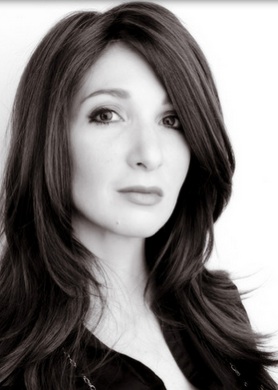












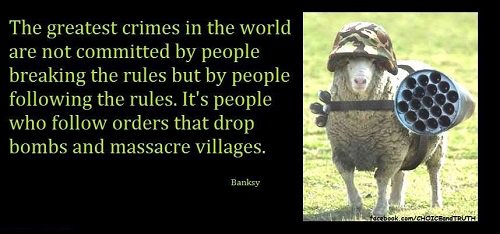
.jpg)

